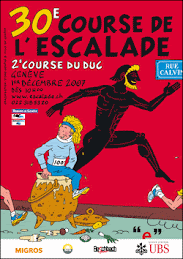HIV/AIDS Awareness
1 December is World AIDS Day (WAD). Students at Campus des Nations marked the event in a variety of ways. Year 12 students were addressed in November in their Global Affairs Class by a young woman working in HIV prevention through an International Organization – and who is infected with HIV herself. On WAD itself, 20 Nations students (aged 14-18) participated in a HIV/AIDS workshop held at the World Health Organization, while another Nations student participated in a prayer service at the World Council of Churches. In addition, several Class 12 students organized activities for WAD – including a student assembly and fundraising (with proceeds going to a community center in Tanzania).
Teen Drug and Alcohol Use
Parents of adolescents are often concerned about drug and alcohol use – and for good reason. By the time they graduate from secondary school, more than half of students will have experimented with drugs and alcohol, and some will have become regular users. (After alcohol, marijuana is the next most used substance by secondary students.)
Key to keeping adolescents away from such risky behavior is good teen-parent-community relations. Knowing where your child is and with whom is basic – but more than that is required. Students who have good relationships with parents (engaging in regular conversations, eating meals together, etc.) and who are active in other social groups (e.g. church, school) are generally at lower risk for drug or alcohol use.
As part of the health program at Campus des Nations, sessions on drug and alcohol use are integrated into the curriculum. In year 5, as part of the Unit of Inquiry that looks at the Human Body, students will have a special presentation on the brain. Older students will be visited by the Geneva Police’s Task Force on Drugs (years 12-13) while younger students (years 10-11) will be addressed on the subject of “Kids in Town”. A visit with the school nurse for students in years 7 and 8 will address the topic of substance use in both individual and class discussions.
If you are concerned that your child may be using drugs or alcohol, talk to someone about it. This could be a family physician – or your school nurse, psychologist or one of your child’s teachers. If there is a problem, early intervention will be more effective than waiting.
01 December 2007
Subscribe to:
Posts (Atom)

